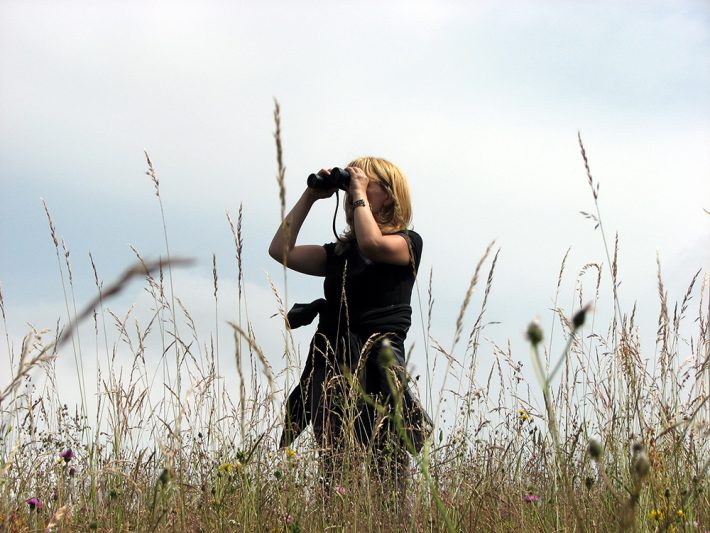Introducing the Citizen Science Special Feature and Hub
Ecological projects involving citizen scientists have rapidly increased in number and there is a general consensus that they can produce high-quality data that allow novel ecological questions to be addressed. To provide a platform for these questions the BES journals have published a special feature dedicated to citizen science.
Citizen science projects can also play an important role in engaging people with nature. To make the work published in the special feature accessible the BES have launched a new Citizen Science Hub.

Citizen Science Hub
The Citizen Science Hub presents a series of training resources, case studies, and contact details for those interested in conducting Citizen Science projects or promoting their own project. Plain language summaries for a number of the projects presented in the special feature are also included.
Special Feature
Joint with Journal of Applied Ecology, Journal of Animal Ecology, Journal of Ecology, Methods in Ecology and Evolution People and Nature and Ecological Solutions and Evidence there was an open call for papers surrounding the topic of ecological projects involving citizen scientists, these papers are now published together across the six journals in the citizen science special feature and are currently freely available to read.
Podcast
To find out what readers can expect to find in this special feature Ian Thornhill, lead author of the special issue editorial chats to Journal of Animal Ecology Blog Editor Julie Sheard.
Blogs
Over on the journal blogs authors discuss their research and tell the story behind the paper:
Relational Thinking – The People and Nature Blog
The power of connected learning through citizen science: In this blog post Benjamin Haywood talks about the power of connected learning through citizen science and his new research ‘Shapeshifting attachment: Exploring multi‐dimensional people–place bonds in place‐based citizen science‘
Thinking through the regulation of wildlife citizen science: In this post Alexandra Palmer discusses her Perspective article ‘Getting to grips with wildlife research by citizen scientists: What role for regulation?‘
Q&A: Claudia Santori on TurtleSAT and citizen science: In this post Claudia Santori answers some questions about her citizen science project, TurtleSAT and citizen science more broadly, as well as her research ‘Changes in participant behaviour and attitudes are associated with knowledge and skills gained by using a turtle conservation citizen science app‘.
The Applied Ecologist
Catch them if you can! A combined effort by citizens and scientists to monitor mosquitoes in Germany: Pernat and colleagues evaluate the performance of the German citizen science project ‘Mückenatlas’, in comparison to professional mosquito monitoring efforts.
Can ‘Citizen Scientists’ play a valid role in conservation management?: The emergence of citizen science in biodiversity monitoring has transformed the methods by which biodiversity surveys can be conducted. With the recent development of automatic visual identification tools, Pierre Bonnet and colleagues present two distinct case studies implementing citizen science and the use of Pl@ntNet, an automatic plant identification platform.
Tanja Petersen: Uncovering biases in Citizen Science data: In this Q&A, we ask author Tanja Petersen about her team’s research on skews and biases in the GBIF database, and find out a little bit more about the author herself.
Be sure to check back throughout February – we will be publishing more posts every week.
BES Citizen Science Special Interest Group
If you are interested in citizen science, you can join the BES Citizen Science Special Interest Group. Visit the page below to join the mailing list, see upcoming events, and learn more about how you can become involved. The group aims to promote the value of citizen science by sharing experience, expertise and providing a community to foster innovation in research through citizen science.
Like what we stand for?
Support our mission and help develop the next generation of ecologists by donating to the British Ecological Society.